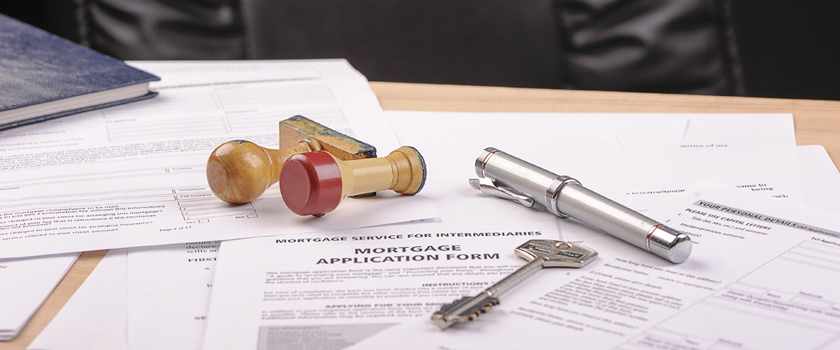2025 Offer Request a Quote Today and Grab a $50 Coupon for Free!
Belgium, a small country located in the heart of Europe, is a melting pot of different languages and cultures. Belgium has three official languages, but there isn’t one central language that can be called the Belgian or Belgium language. For ages, Belgium has been deeply inspired by its powerful neighbors France, Netherlands, and Germany.
This could be a reason why its three official languages belong to these regions and linguistic backgrounds. While exploring the languages of a region, seeing a combination of the many languages and sub-dialects could become more confusing. We’ve got you covered to navigate through Belgium languages, and why understanding them can be of great help.
Read this article to dive deeper into its rich linguistic landscape.
Belgium is a haven for chocolate fanatics. It is famous for chocolates, denser Brussels waffles, century-old beers, historical sites and most importantly world-famous music festival Tomorrowland. Belgium doesn’t have a single, unified language but it has three official languages that are widely used in different regions.
French and Dutch are mainly taught in Belgian schools, making the majority of Belgians bilingual. While Dutch (Flemish) is used in the Flemish communities, French is widely spoken in Wallonia. Moreover, Brussels, the most densely populated area in Belgium, has French as the predominant language. Flemish is also gaining traction and it’s no surprise that you will find a huge volume of Flemish speakers as it shares official status.
Dutch belongs to the West Germanic language family, sharing common values with English, German, and Frisian. Dutch carves its path over time and becomes the most widely used language not only in Belgium but in the Netherlands also. Around 60% of the population are native Dutch speakers, accounting for 6.5 million people in Belgium. The Dutch-speaking community resides in the northern region of Flanders. It is also the official language of French living in Brussels. Dutch (Flemish) is the most common language spoken in Belgium.
When Belgium became part of the Netherlands, a voice for linguistic dominance arose. The Dutch officials tried to impose Dutch as the only language of the region. However, Belgian independence in 1830 shattered these efforts. Meanwhile, the French language was taught in schools for decades. This changed in the late 90s after increasing linguistic conflicts and issues.
French ranks second in the list of most-spoken languages in Belgium. You can find the majority of French-speaking people in the Wallonia region and Brussels, the capital of Belgium. French account for almost 40% of the Belgian population (4.5 million). French spoken in Belgium is quite similar to standard French in France. So, if you aren’t sure about learning another language, you can use French to communicate with locals. However, it still depends on which area you’re visiting or your target region. French won’t help you in Dutch-speaking or German-speaking areas.
The French gained a significant reputation in Belgium through its historical connections with France. The language gained status and was linked with social mobility, resulting in its widespread adoption in education and administration. The French even took over areas where Dutch was widely popular. However, the current focus is on promoting Dutch in major regions to ensure language equality throughout Belgium.
The German-speaking population roughly covers 1% (75,000) of the entire Belgium population. You will find German speakers in the eastern regions of the population of Belgium. This population became part of Belgium after World War I and that’s why the language spoken here closely resembles standard German. While German doesn’t represent the majority in Belgium, it is among the Belgium official languages because of its historical context and regional distribution.
You might be wondering if 60% of the Belgians speak Dutch and the rest of the 40% of the population speak French. Does it mean these two languages cover the entire population? You need to stop here and think again. Well, we know its population is bilingual so people who have proficiency in Dutch also use French as their second language. The same goes for German as well. When people live in a diverse community, they get to know about different languages and cultures. Belgium is a prime example of a region with diverse cultures and linguistic backgrounds.
If you believe Dutch, French, and German are the only languages used in Belgium, you’re misinformed. Beyond the official three, Luxembourgish, the native language of Arelerland, is widely spoken in the Belgian province of Luxembourg. It is often regarded as the fourth language. Though Luxembourgish isn’t a national language, it is still recognized as a minority language by the French community. However, Belgian French has replaced it since the late 20th century despite its thriving usage in the Grand Duchy of Luxembourg.
The linguistic landscape of Belgium also includes some immigrant languages. People move to Belgium for better work opportunities and lifestyle. These immigrant languages were derived as a result of migration over the last few decades. Among these languages are Berber, Arabic, Spanish, Portuguese, Turkish, Italian, Greek, Polish and English to name a few.
Belgium’s linguistic adventure doesn’t stop here. It’s a bit complicated but we’re here to assist you to understand each language and its dialects. At this point, you have a clear understanding of what language they speak in Belgium. Now, let's talk about some famous dialects and their usage for each specific region.
Belgium features a compelling range of Germanic and Romance dialects. While exploring Belgium, you will find their speakers across many famous regions. Flemish dialects of Limburgish, Brabantian, and East and West Flemish are among the widely used dialects. The German-speaking region also has a common dialect Low Dietsch influenced by the German language. Moving ahead, the French-speaking area of Belgium is home to a vibrant tapestry of notable French dialects like Walloon, Picard, Lorrain, and Champenios. Each dialect adds a unique flavor to the French spoken in Belgium.
Though there is no straightforward yes or no answer for this statement. It all depends on which region you are visiting or targeting. As around 55% of the Belgium population can understand English, some areas are comfortable with English while some prefer official languages only. People working in hospitality and other touristy sectors will speak English. However, locals in Belgium appreciate people who go the extra mile to learn their language and try to communicate in it. Hence, relying on the English language only will make things complicated for you. We have observed that European travelers manage to communicate with locals in Belgium. Because the languages spoken in Belgium are also widely used in major areas of Europe.
Belgium is attracting international tourists for several reasons. Firstly, the country capitalizes on cultural gems. From the medieval charm of Bruges to the artistic heritage of Antwerp, Belgium has a lot to offer to history and art enthusiasts. Another important thing that fascinates international tourists is unique experiences like beer tastings, exploring the beauty of the Ardennes region, and attending local festivals. You’re visiting Belgium because you probably want a break and witness the natural beauty of the world-famous European attraction. However, the lore of your tour fades away if you don’t have a bridge to communicate and interact with locals.
It’s important to explore the common Belgium languages; however, it is even more important to speak the right language in the right place. As Belgium is a multilingual paradise, you need to understand the geographical background of each language. You simply cannot communicate in Flemish if you’re in Wallonia. Chances are high that people won’t be able to understand you. Similarly, your linguistic expertise in French won’t work in Flanders and its neighboring areas. To avoid these upsets, you should speak the right language in the right place.
Planning to visit Belgium to explore its natural beauty or seek opportunities for your business, but afraid of language barriers? Well, this is something that needs your quick attention to get the most out of your next visit. Visiting Belgium without exploring its official languages is like going on an adventure blindfolded. From the enchanting beauty of Bruges to the grassy forests of the Ardennas, Belgium holds a bunch of attractions that captivate travelers from around the world. Our language translation services in Belgium will introduce you to different cultures and translate the right language for the right place so you can experience its beautiful places in the best way possible and get the most out of your business visits.

The term ‘woke’ has come from the black culture and now it has been removed from its origin after it
Read more
Mars Translation provides high quality and professional Certified French Translation Services all over the world. We have a team of
Read more
Mars Translation provides one of a kind professional Chinese Document translation services all over the world. All of MT’s translators
Read more
MarsTranslation provides one of a kind Chinese Legal Translation Services. We have a team of native Chinese linguist who specialize
Read more
Chinese Certified Translation services is one of the most asked for service at MarsTranslation. We believe in providing quality services
Read more
Mars Translation is one of the fastest growing companies in the translation industry. This is the reason why we pay
Read more
MarsTranslation has a huge team of website translation specialists in more than 230 languages. Our translators are constantly supported by
Read more
Mars Translation provides high quality and professional Certified Spanish Translation Services all over the world. We have a team of
Read more
Mars Translation has hired some of the best and most experienced Danish translators to work on your translation projects. We
Read more

